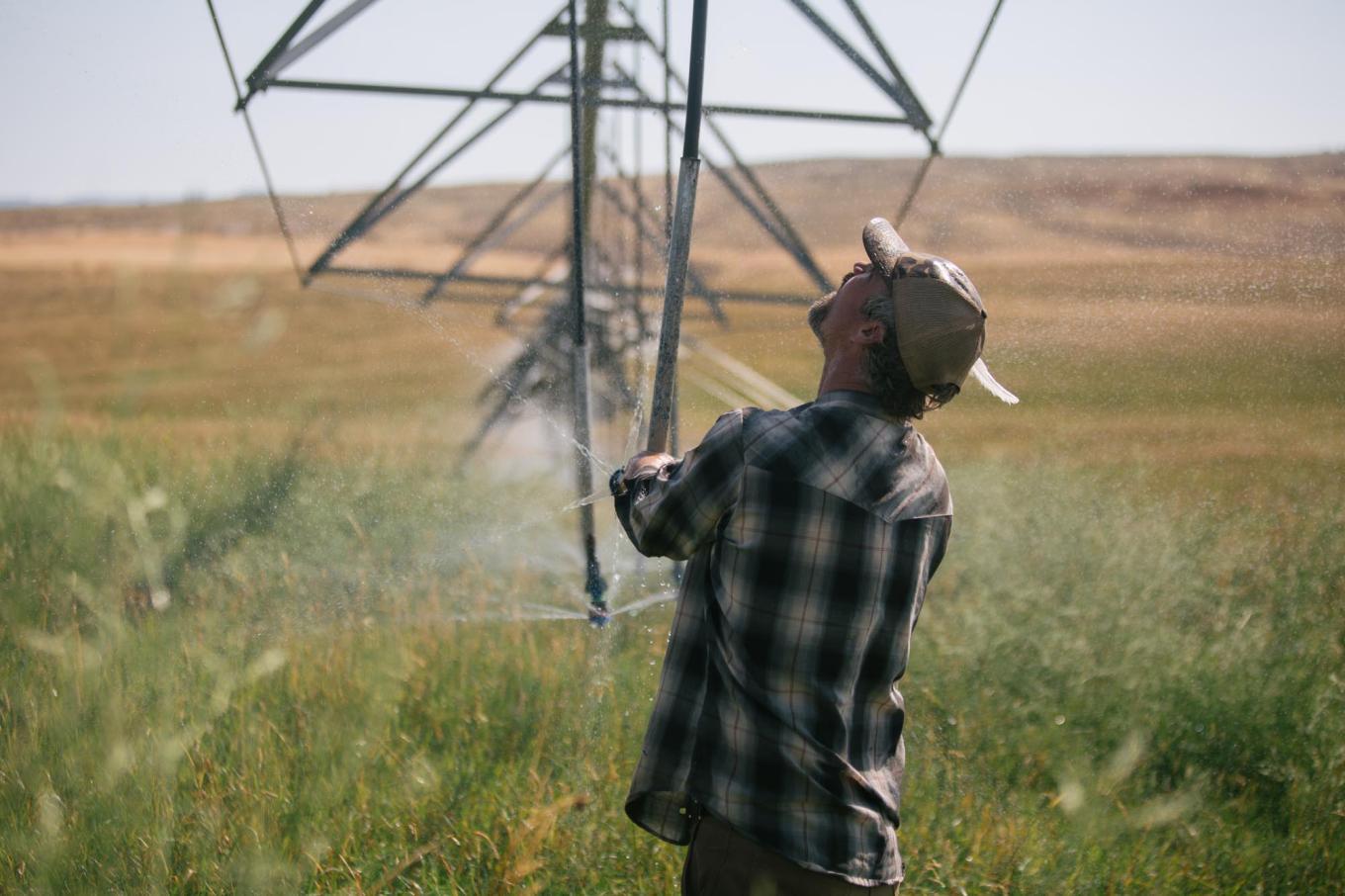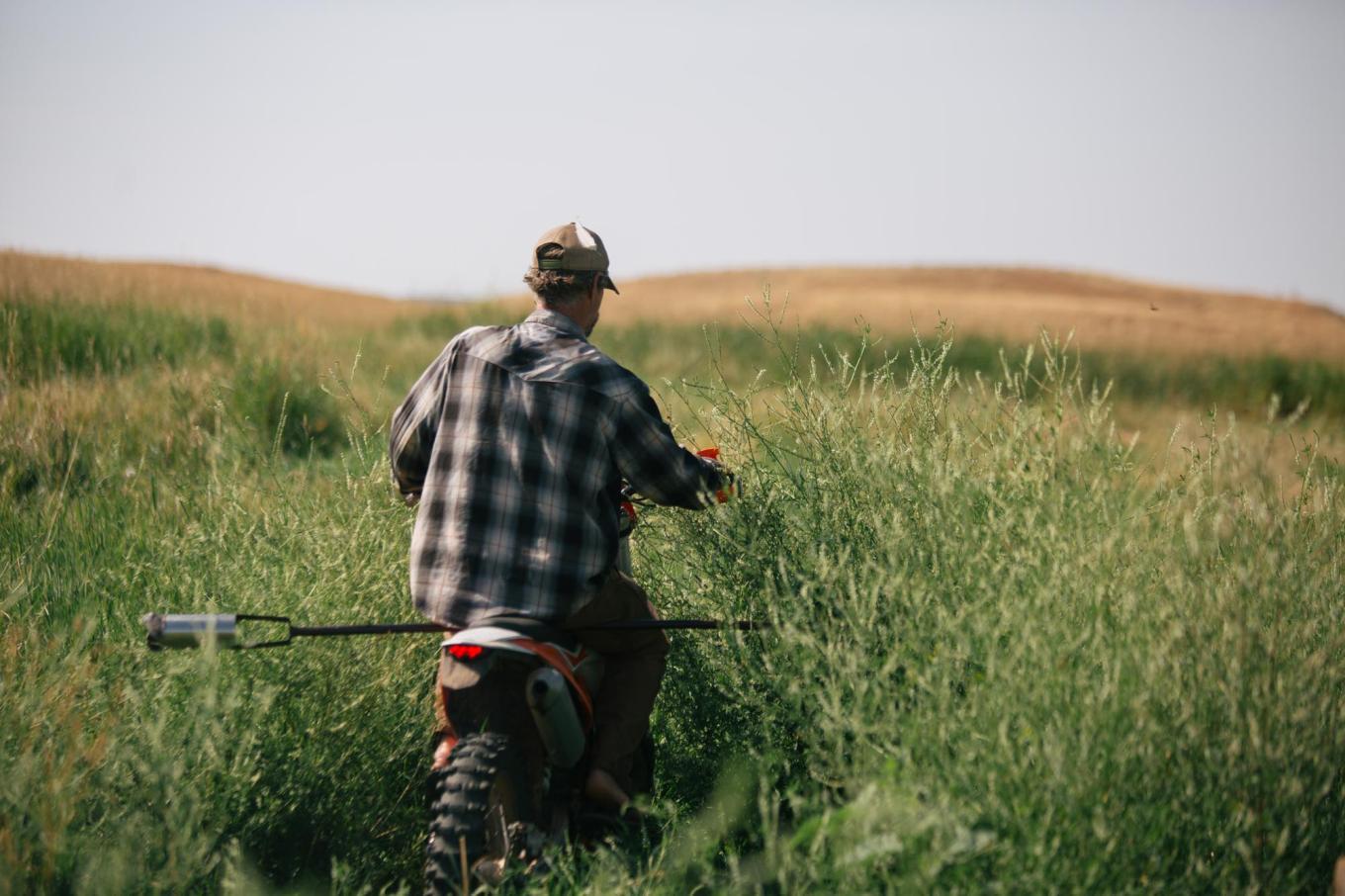
RC Carter
Carter Country Meats
RC Carter, a fourth-generation cattle rancher, manages a sprawling operation three miles north of Ten Sleep, Wyoming, at the base of the Bighorn Mountains. His ranch spans 7,000 acres of deeded rangeland, and with leases from the BLM and other sources, it totals nearly 50,000 acres. Carter’s focus is on grass-fed beef production, particularly on his 500 acres of irrigated hay production, which supports his livestock through the winter.
SARE
Wyoming
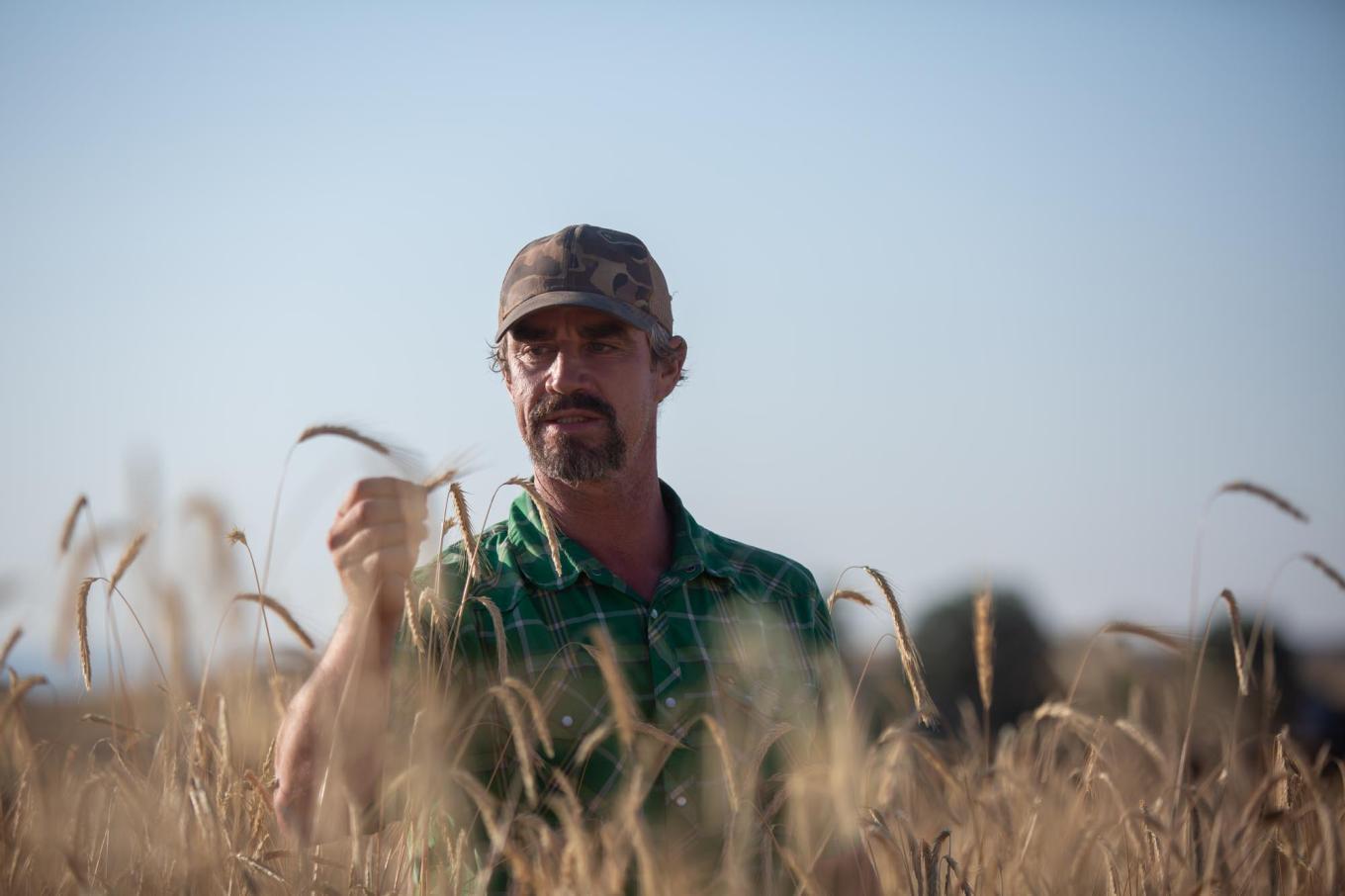
Historically, the land was stewarded by massive herds of bison, but after their disappearance in the late 1800s, cattle and sheep herding took over, without proper rest periods for the land. This led to severe degradation until the government intervened, parceling out land to ranchers and slowing the decline. Today, Carter sees the solution in addressing water accessibility and intensifying grazing management. Despite the challenges of navigating policies and using regenerative grazing on arid landscapes, Carter’s goal is to heal the land while ensuring his cattle business remains profitable.
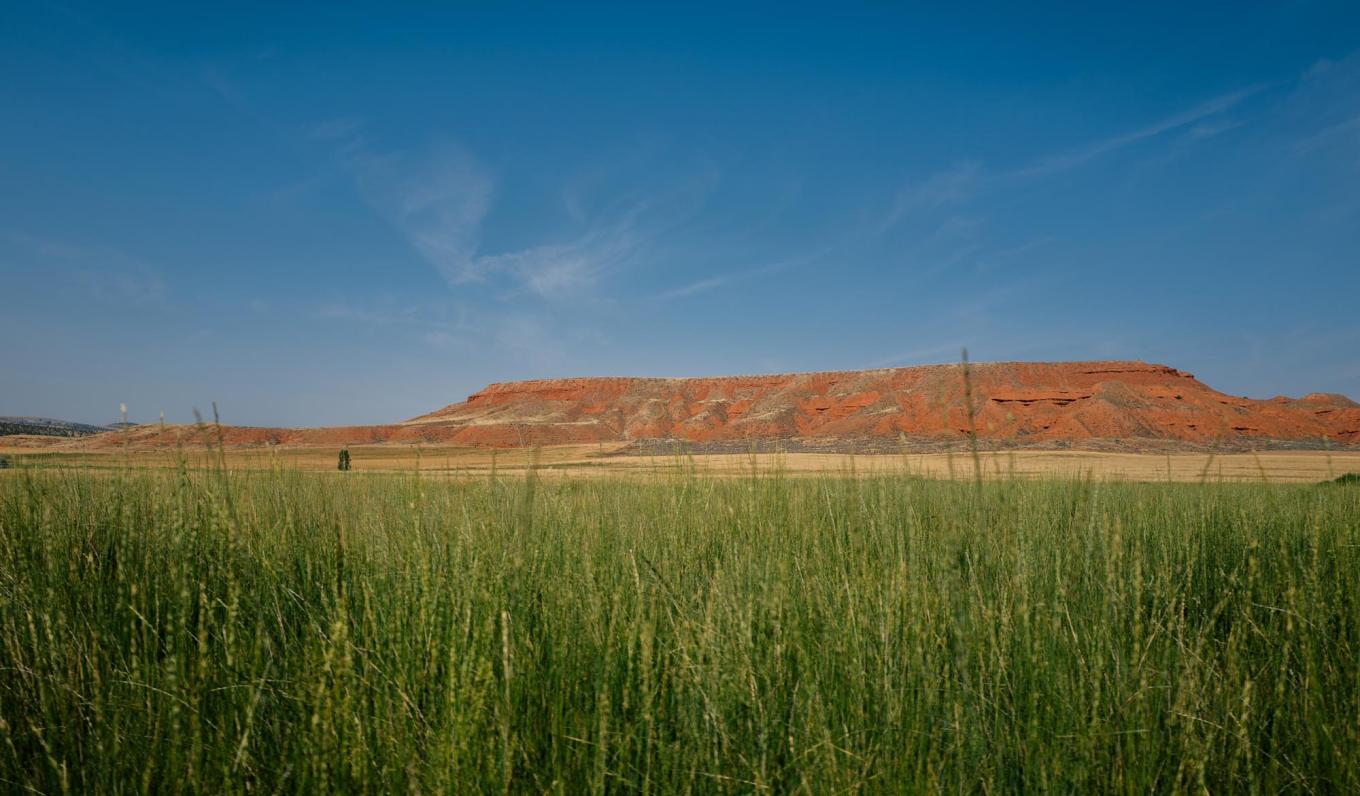
Our starting point is we have to address water. Then there’s the reality of the terrain. We’ve been working really hard to figure out how to intensively graze animals on large, arid, rough landscapes where there’s trees. At the end of the day, we’re trying to use the animals as a tool to heal landscapes, and build ecology and soil.
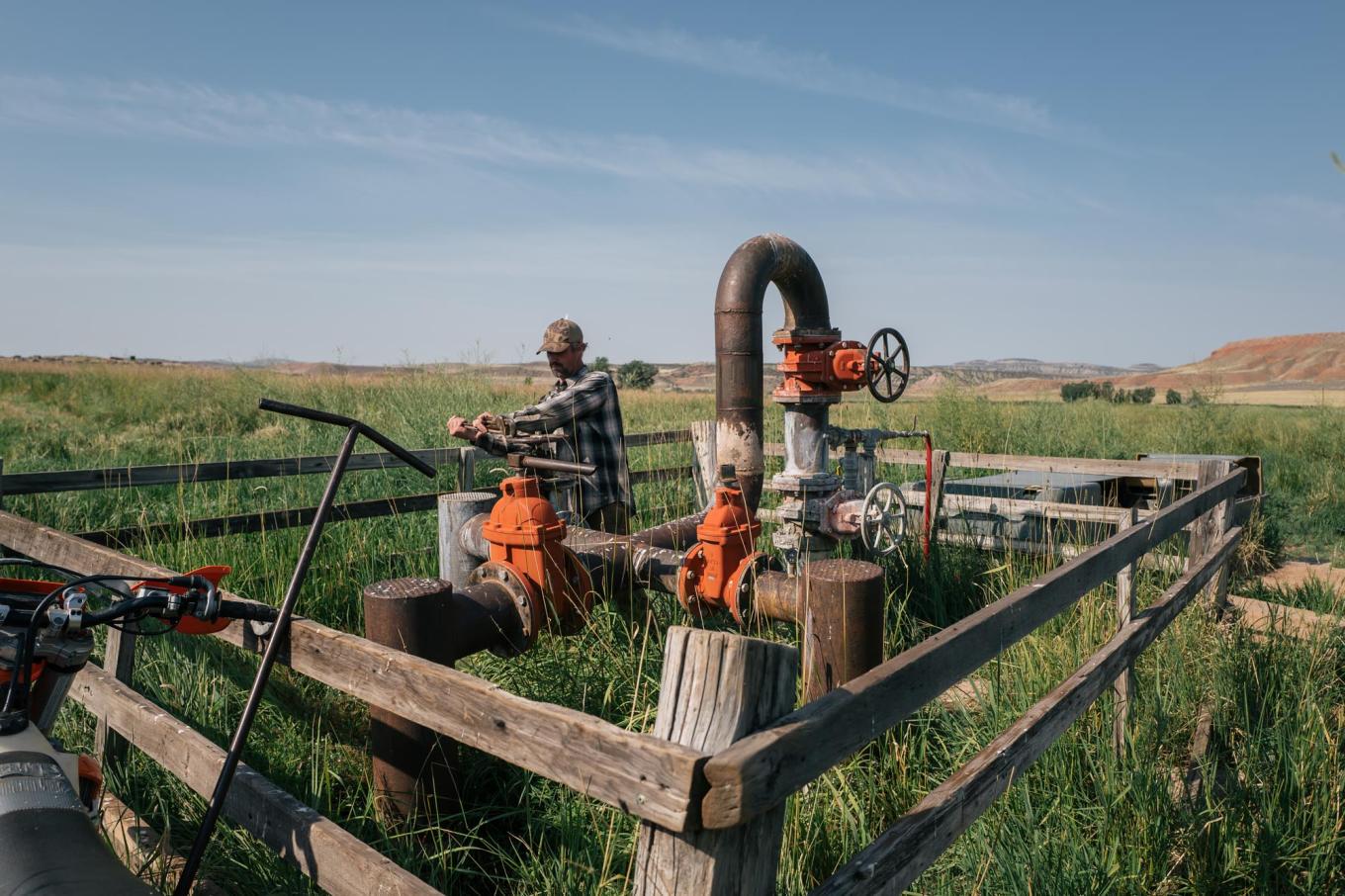
Carter Country Meats, established in 2012, markets beef locally and regionally, with distribution hubs in Denver and sales to local restaurants. The family-run operation is supported by Carter’s wife Annie, their children, and a small team of employees. Over the years, Carter has implemented more regenerative farming techniques, including avoiding chemicals and fostering natural ecosystems to control pests.
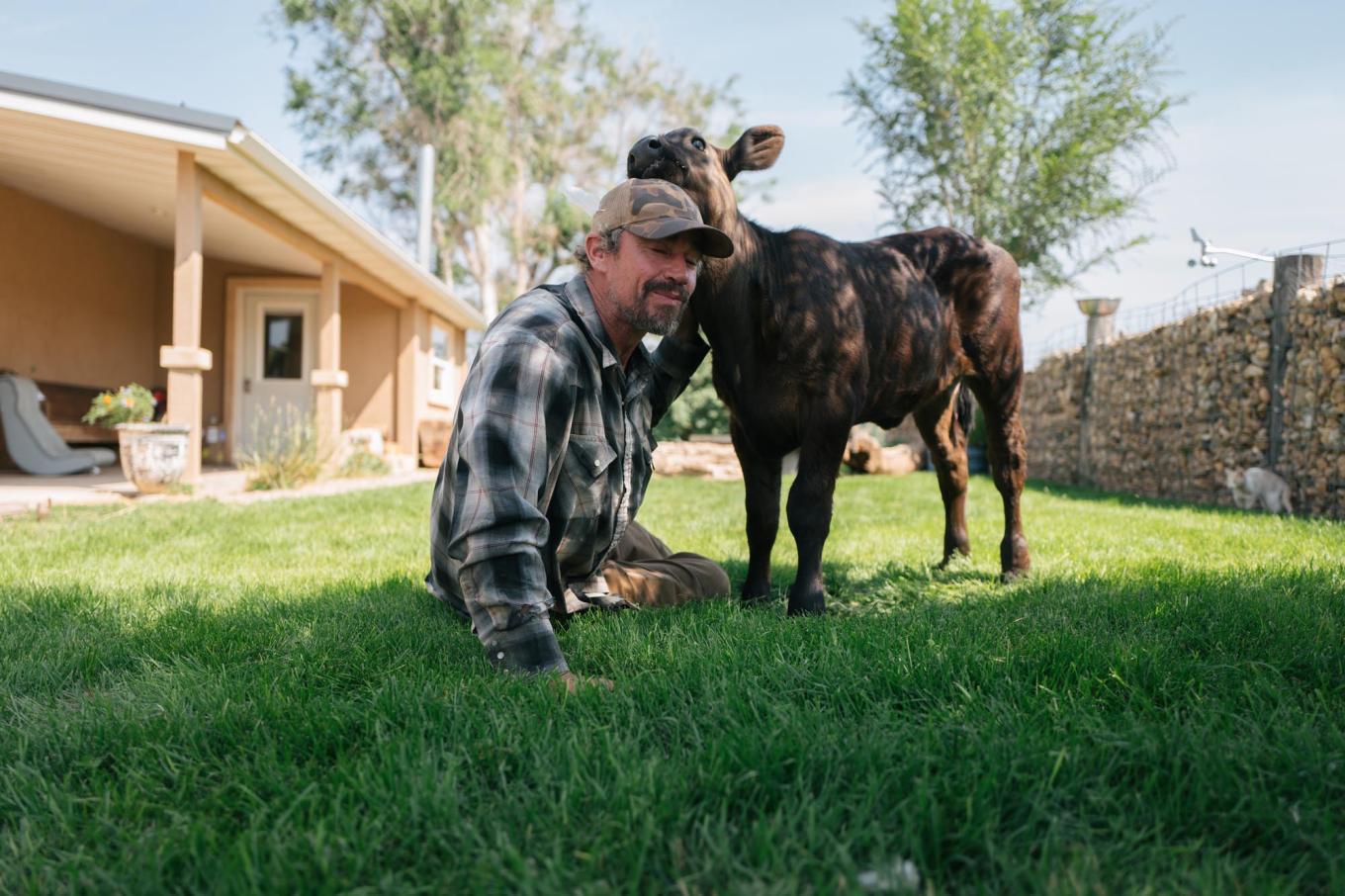
There’s an alfalfa weevil worm that gets in fields in the springtime and everybody around here sprays for them. I’ve used zero chemicals for four years. Last year we hired out a guy cut our hay and he commented, ‘Man, you guys did an awesome job spraying your weevil.’
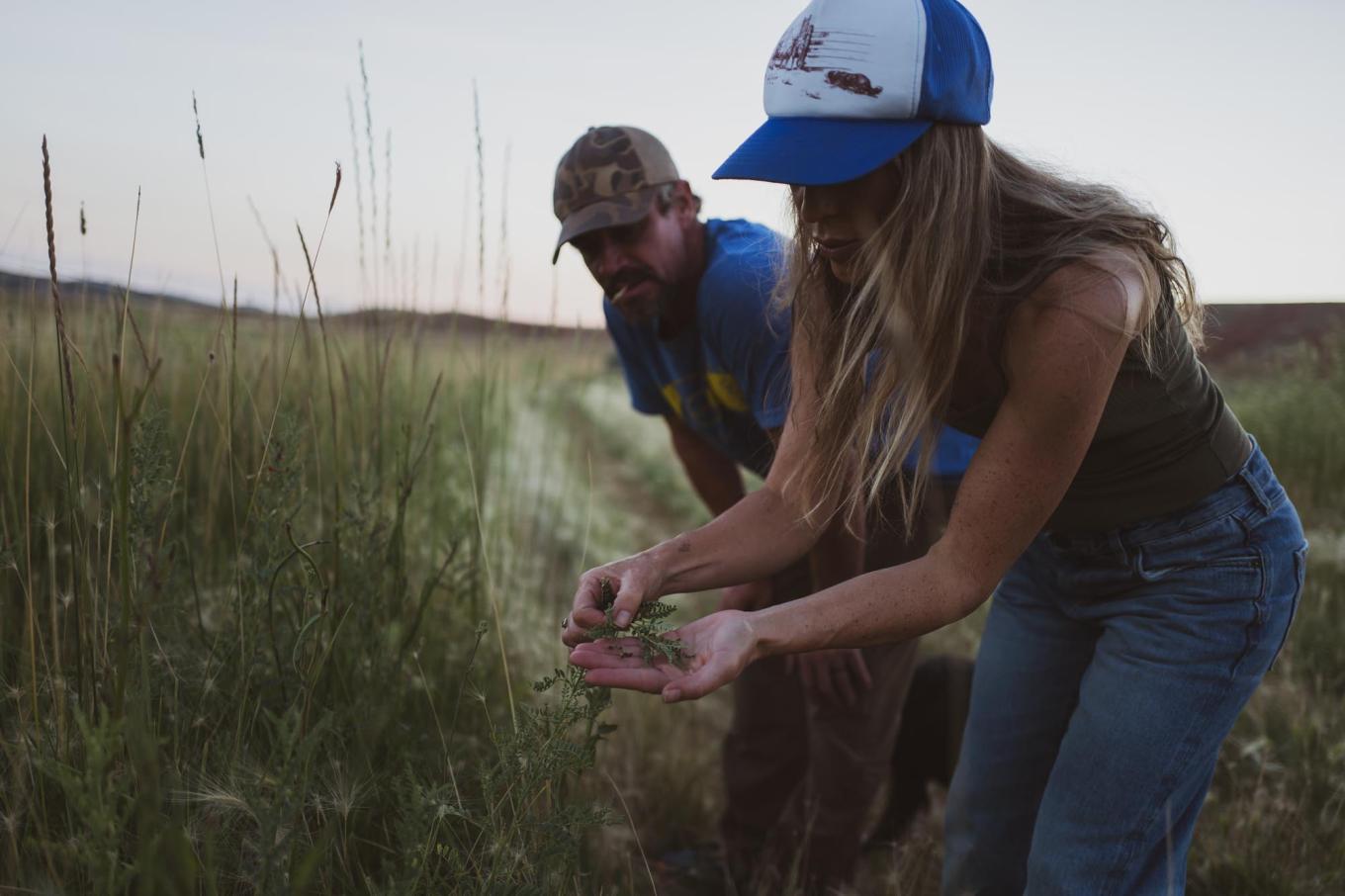
Through the Western Sustainable Agriculture Research and Education (SARE) program, RC was able to utilize irrigation to bring an alfalfa field into a state of biodiversity equilibrium that no longer needed chemical application to manage the persistent weevil issues the region faces. He’s seen success with these efforts, including healthier soil and increased production without relying on fertilizers or pesticides. His long-term vision is a more profitable ranch that nurtures the land while producing quality beef.
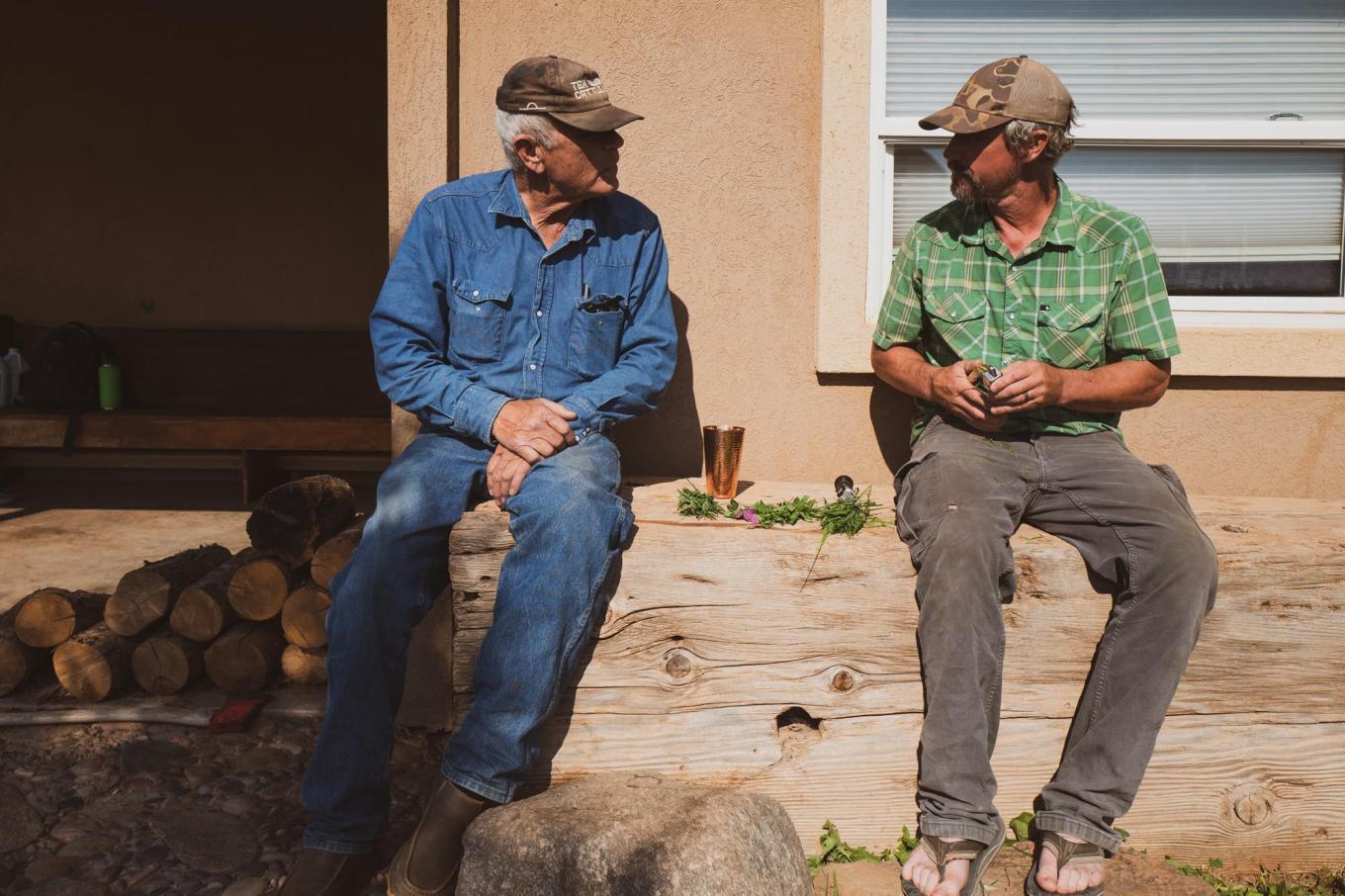
It’s all about ground cover. As far as crop diversity within the fields we’ve got this technique now where if there’s too much space between the plants I’ll let a whole field go to seed and then put the cows on it and they the seeds. And the new seeding is tremendous because the cows knock the seeds off and press them into the soil along with their natural fertalizers.
